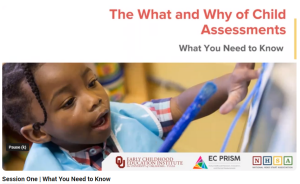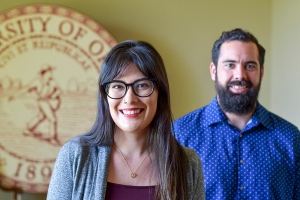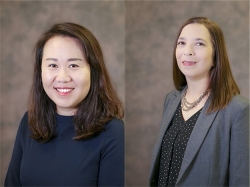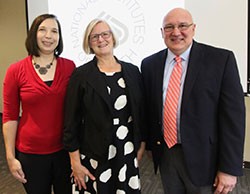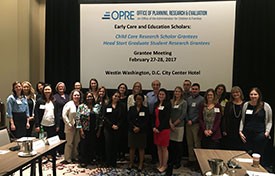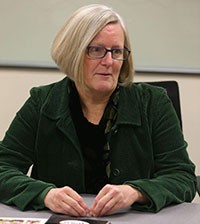March 4, 2021
Two ECEI researchers receive national recognition for their work
Please join us in recognizing our research team for their tireless efforts to drive advancements in early childhood education.
Last month, two of our researchers were recognized nationally for their contributions to the field of early childhood research while several others had their work highlighted at national conferences.
Shinyoung Jeon receives early career award from AERA
Dr. Shinyoung Jeon, our senior research and policy associate, received the American Education Research Association’s Early Education and Child Development Special Interest Group 2021 Early Career Award.
The award is given annually to an individual with an early and promising record as a researcher and scholar in the early childhood field.
Jeon’s work is primarily focused on three areas: longitudinal developmental trajectories of children from low-income families with a focus on resilience; impacts of early education intervention programs on developmental outcomes of children from low-income families; and teacher-parent partnerships and family engagement in early care and education.
She has published 16 peer-reviewed articles in top-tier journals and given more than 30 presentations since 2017.
Sherri Castle receives national award for dissertation
Our Assistant Director of Research, Dr. Sherri Castle, was named the American Education Research Association’s 2021 Early Education/Child Development SIG Outstanding Dissertation Award winner.
The award recognizes dissertations of exceptional merit that relate to the development of children between birth and age 8, including studies focused on families, teachers, and others who care for and educate young children.
The selection committee commented: “We had many strong applicants, but we were very impressed with (this) work and its implications in the field.”
Castle’s dissertation, titled “Children’s individual experiences with teachers: Precursors and associated outcomes,” focused on understanding the experiences of individual children in early education classrooms. Her finding that children who enter preschool with lower academic and self-regulation skills tend to experience less closeness and more conflict with teachers provides important insight that the very kids who need the most positive experiences with teachers may be least likely to get the types of interactions needed to support their already lagging development.

